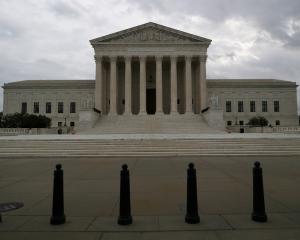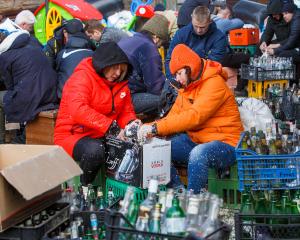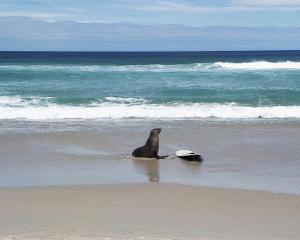It's a bit over 40 years since Gil Scott-Heron penned the piece that would earn him monikers like ''the godfather of rap'' and ''founder of the spoken word movement'' for the rest of his days.
In 1970, so the story goes, Gil and some friends were sitting watching news of a demonstration on the goggle box.
Someone said, ''People ought to get out there and do something. The revolution won't be televised.''
Someone else said, ''You should write that down.''
Gil picked up his pen. Already saturated in a culture of student protests, he watched and wrote and out came the vitriol against consumer dumbdowns that is ''The Revolution Will Not be Televised''.
If you know the piece, it needs no introduction.
If you don't, it's worth a careful listen.
It's been so heavily referenced and co-opted over the years that it's more of a meme than a poem or song.
Much of it is unpublishable before nine o'clock watersheds and not for the faint of heart and white of soul.
But here are lines one, two, five, 56 and 57 (depending on line breaks, of course):
You will not be able to stay home, brother.
You will not be able to plug in, turn on and cop out ...
Because the revolution will not be televised ...
The revolution will be no re-run brothers;
The revolution will be live.
Will it though? I mean, it might have been, it might still be, but it's getting hard for me to tell.
Partly because, thanks to a recent upsurge of common sense meets modernity, nothing is digitally terrestrially televised in our house any more.
Not just because we're trendy modern and want to watch TV on demand.
More like we're sick of new lows in psychotic-killer-meets-product-placement series and unreal Reality TV that tells us what we've just seen ad infinitum after slick, soundbright ads.
And the news is worse than the murder shows (or is it just one of them?) and anyway it's no longer really new when you can get it 24/7 on the internet.
I'd love to see what Gil Scott-Heron would've written today about how our smaller, faster, more portable screens are affecting our revolutions.
He died in May 2011, while #Bouazizi was making waves across the tide of the Arab Spring.
The revolution will be hashtagged. (See also #iammalala, #blacklivesmatter, #jesuischarlie and many more.)
The revolution will be Facebooked, status updated.
Plugged in, turned on and opted in.
The revolution will be tweeted, succinctly, in real time.
Just look at the sources of information and comment in breaking news reports in the more traditional media.
The revolution will be hacked, or hacking, combining violent terminology and online realism as never before.
The revolution will be YouTubed.
Ask Brown Moses (aka, less romantically, Elliot Higgins), an unemployed man in Leicester, England, who, in 2013, became an internationally sought-after weapons expert on the Syrian conflict through his relentless study of hundreds of movie clips uploaded each day from inside the warring zones.
The revolution is being fought more and more in the social media space.
And while Gil Scott-Heron lambasts well-known brands in his original song, there's no doubt that, to get ahead now, the revolution must be memorably branded.
When you ask Google for videos of ISIS it returns 152 million results.
Compare that with 95 million for Lord of the Rings, 27 million for Prince William and 253,000 for the Wellington Sevens.
Their revolution is certainly being graphically screened and cleverly co-ordinated.
But how do we know it is real time and live?
This, then, is a problem with our modern revolutions.
Online media is malleable.
Our news feeds and advertising have never been so targeted and biased.
There's no saying any more that the screen revolution I perceive will be true, real or even the same as yours or your friend's or your neighbour's.
The revolution will be obfuscated and personalised.
The revolution, too, has been slactivised.
Because they're so immediate, it's easy to believe that screens are the same as streets.
That the things we do online make a difference.
That by posing a selfie with smeared lipstick or no make-up we are raising awareness.
That adding our names to a mass-emailed petition will effect real change. And it may. Maybe.
So why is it that I remember Chris Horan's one-man-walking placard protest in Wanaka in favour of an $18.80 living wage way more than online appeals on the same subject?
Is it because Gil Scott-Heron's truths stay the test of time?
Whatever your revolution is, it's still most effective live.












